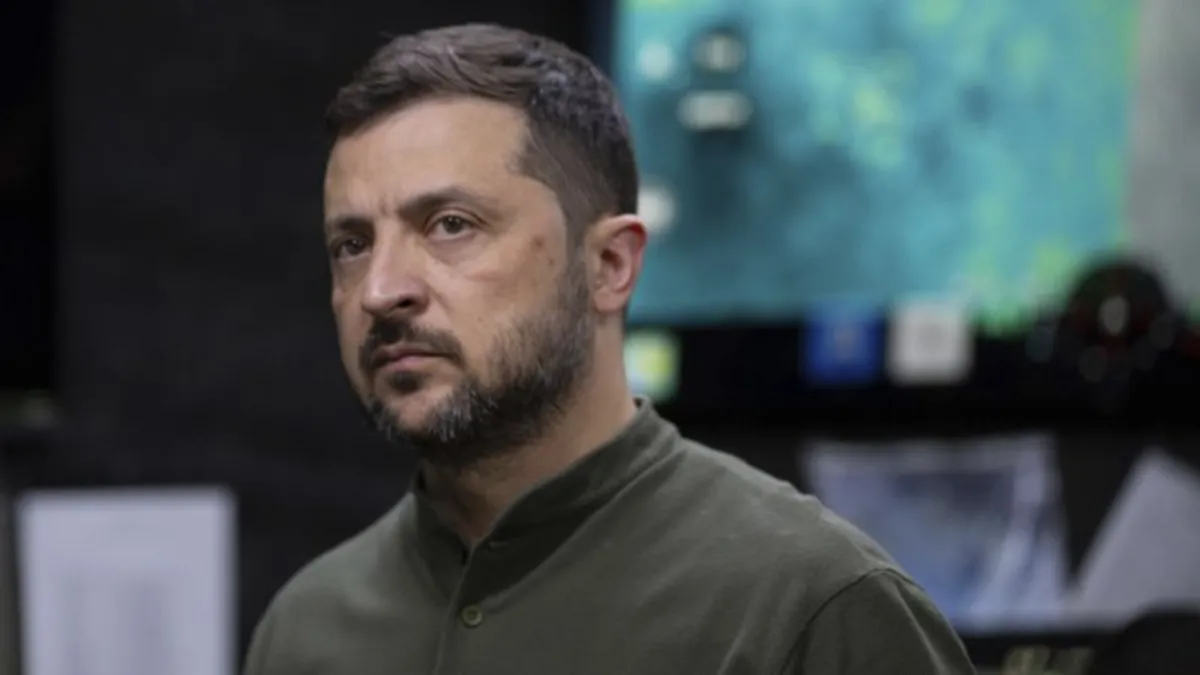
A dramatic diplomatic scramble unfolded on Saturday following President Donald Trump's announcement of a meeting with Russian President Vladimir Putin, scheduled for next week in Alaska. European leaders quickly sought clarity on the terms of this meeting, particularly concerned about ensuring that Ukraine's future was included in the discussions. This urgency reflects the ongoing complexities of the conflict in Ukraine and the geopolitical stakes involved.
In the English countryside on Saturday, European officials convened a hastily arranged meeting with U.S. Vice President JD Vance. During this meeting, the leaders of several European nations articulated their support for Trump’s diplomatic efforts, emphasizing that any peace negotiations must begin with a ceasefire and that Ukraine must be actively involved in the dialogue. Notably, Ukrainian President Volodymyr Zelensky was not listed as a participant in the upcoming Alaska summit between Trump and Putin, raising concerns among European leaders about Ukraine's exclusion from critical discussions.
While the White House has not entirely dismissed the possibility of including Zelensky in some meetings, sources familiar with the situation indicated that any involvement would likely occur after the Trump-Putin meeting. The rapid organization of this summit has left many details uncertain, including the exact location, which has yet to be announced. A White House official mentioned that Trump remains “open to a trilateral summit with both leaders,” but emphasized that the focus is currently on the bilateral meeting requested by Putin.
Following Trump's announcement on social media regarding the meeting with Putin, there has been an intensive behind-the-scenes diplomatic effort to align U.S. allies. The announcement notably lacked clarity on whether and when Zelensky would be included in the ongoing negotiations. Both Zelensky and European leaders have insisted that Ukraine must be involved in any discussions concerning the resolution of the ongoing war.
During Saturday's meeting hosted by Vance at the British Foreign Secretary's manor, European officials presented their terms and sought further information from U.S. officials regarding Putin's proposals discussed earlier in the week. Key points emphasized by Western officials included: Ukraine's involvement in the talks, the necessity of a ceasefire prior to further negotiations, and the expectation that any territorial concessions made by Ukraine must be reciprocated by Russia.
A joint statement released afterward by leaders from France, Italy, Germany, Poland, the United Kingdom, the European Union, and Finland welcomed “President Trump’s work to stop the killing in Ukraine, end the Russian Federation’s war of aggression, and achieve just and lasting peace and security for Ukraine.” However, the statement outlined terms for a peace plan that appeared to diverge from Putin's proposals, which include significant territorial concessions from Ukraine.
The joint statement asserted that “Ukraine has the freedom of choice over its own destiny,” and emphasized that meaningful negotiations can only occur within the context of a ceasefire or reduced hostilities. It also reinforced the principle that international borders should not be altered through force, advocating that the current line of contact should serve as the starting point for negotiations. Furthermore, any diplomatic agreement aimed at ending the war must incorporate “robust and credible security guarantees” to enable Ukraine to defend its sovereignty and territorial integrity.
The terms articulated by European leaders represent an urgent response to the rapidly evolving diplomatic landscape initiated by U.S. envoy Steve Witkoff's meeting in Moscow. When questioned by reporters about the potential contours of a deal, Trump suggested that it could involve “some swapping of territories.” Meanwhile, Europeans understood Putin's proposal to entail Ukraine ceding the entire eastern Donbas region, which is partially occupied by Russia, though the exact details of the plan remain unclear.
The status of U.S. security guarantees for Ukraine moving forward also remains ambiguous. This uncertainty has prompted European leaders to seek further clarification on what a ceasefire would encompass. To address these concerns, Vice President Vance organized an extensive meeting on Saturday with UK Foreign Secretary David Lammy, as well as European and Ukrainian officials, to outline the U.S. perspective on negotiations and to clarify American officials' understanding of Russia's stance. Witkoff participated in the meeting virtually, and a U.S. official later reported that “significant progress” was made, although it remained unclear whether there is European or Ukrainian buy-in ahead of Friday’s pivotal meeting.
After the Saturday meeting, President Zelensky expressed optimism, stating that he felt the U.S. was actively listening to Ukraine's concerns. “Our arguments are being heard. The dangers are being taken into account,” he remarked in a public address, highlighting the importance of Ukraine's involvement in the ongoing discussions aimed at resolving the conflict.